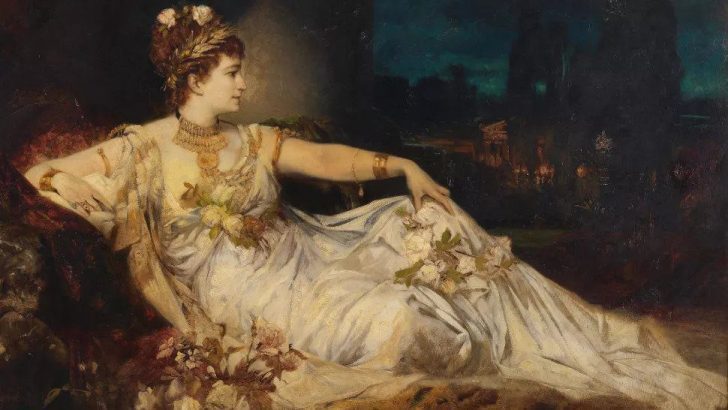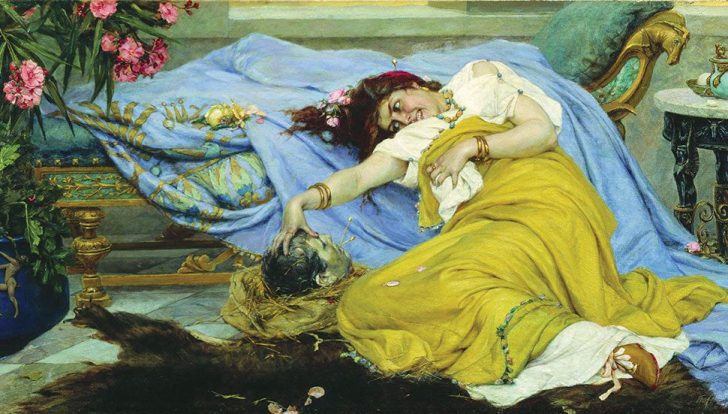Ancient Rome is known for its political, military, and social standing, for example. The Romans were skilled civil engineers and prodigious builders. The thriving civilization delivered advances in architecture, culture, and technology, which remained unequaled for centuries.

Public Domain | Despite all their advancement, ancient Rome wasn't the best time and place for a woman to be alive
Women in Ancient Rome
Far from holding ranks or positions of power, women were expected to do nothing more than look after the home and care for children. Upon birth, their owners and controllers would be their fathers. After being wed, this responsibility transferred to their husbands. History also shows forced weddings of young noble girls and women, who would be married off to form political or financial alliances.
Despite a lack of rights, some exceptionally great women managed to acquire a lot of power and influence in ancient Rome.
Today, we're looking at two of Rome's most powerful and influential women.
1. Fulvia
Fulvia hailed from an 83 B.C. noble family and rose to power near the time of Julius Caesar's assassination in 44 B.C. Becoming repeatedly widowed aided Fulvia substantially, helping her climb the nobility ladder until she married Caesar's right-hand man, Mark Anthony. Following Caesar's assassination, Anthony became one of the three co-rulers of Rome who went on a revenge killing spree to eliminate their political rivals.
One such enemy was Marcus Tullius Cicero, whose head, according to Cassius Dio's Roman History, Fulvia spat on before taking out his tongue and piercing it with pins. Fulvia met her defeat and death in 40 B.C. after becoming the "de facto co-ruler of Rome" and waging war against Caesar's adopted son Octavian.

History Today | A painting by Pavel Svedomsky depicting Fulvia with the head of Cicero
2. Agrippina the Younger
Extraordinarily enough, Agrippina was a sister, niece, wife, and mother to some of the most famous Roman emperors. Her earliest mention came in 39 A.D. when she was exiled for plotting against her brother, Emperor Caligula, only to return to Rome in 41 A.D. after his assassination. Eight years and one pesky change in law later, she married her uncle, Emperor Claudius.
Agrippina broke every rule of "appropriate female behavior" at the time. Luckily for her, Claudius was bad at politics, so not only was she consulted for every political decision, but she also ran and administered the empire. Later on, to help her son Nero take the throne, she had her husband poisoned in 54 A.D.
It wasn't long before Nero grew resentful of her due to how much control she had over him. Reportedly, it took quite a few assassination attempts ordered by Emperor Nero before her death in 59 A.D.

Public Domain | Emperor Claudius married Agrippina after he executed his third wife
The history of ancient Rome is rich with more of such brave, courageous, and truly marvelous female figures including Valeria Messalina, Livia Drusilla, Claudia Metrodora, Helena, Julia Avita Mamaea, and Agrippina the Elder.




